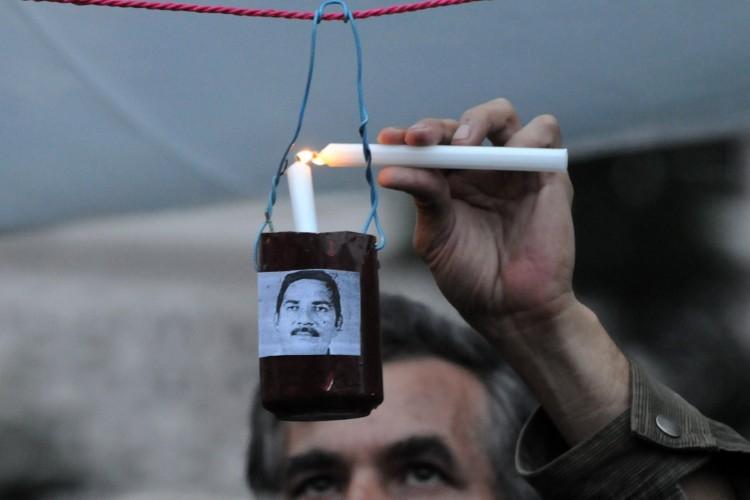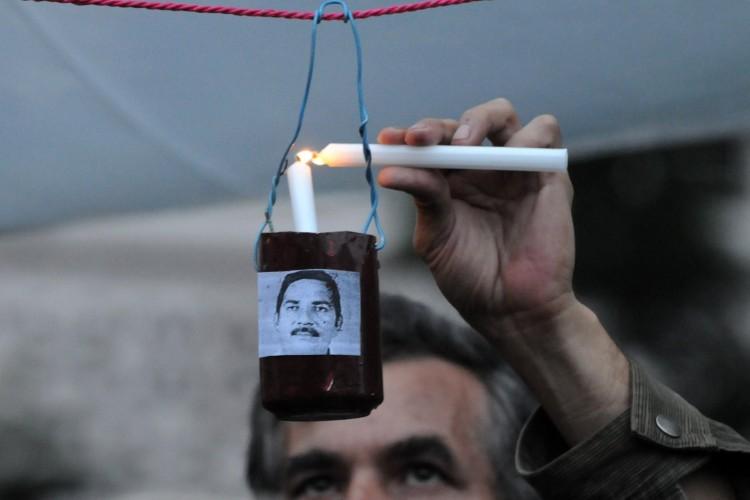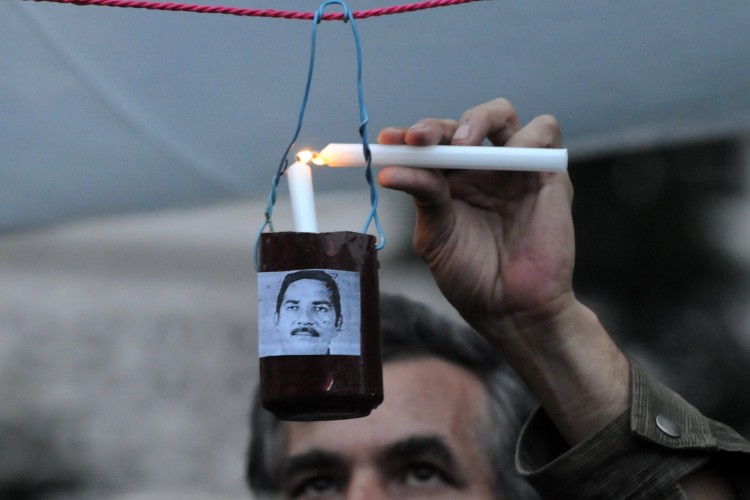WASHINGTON—It is a dangerous time for journalists, not so much from crossfire in warzones, but because journalists are hunted down and slaughtered for reporting the truth.
On average, 30 journalists are murdered every year in countries where rule of law should function, like Colombia, Russia, and the Philippines, said Robert Mahoney, deputy director of press freedom watchdog Committee to Protect Journalists (CPJ), speaking at a congressional hearing in Washington on July 25.
The murderers go largely unpunished, deterring others that might want to report on organized crime, corruption, and conflict.
“Most journalists killed in conflict zones are not covering war—they are local journalists covering local issues like human rights and corruption,” Mahoney said.
“In about a third of the cases, according to CPJ research, government links are suspected, thus reinforcing the cycle of impunity,” he added.
Mahoney says imprisonment and exile send the same silencing message.
Of the 179 journalists known to be incarcerated worldwide today, around one-third are being held without a publicly disclosed charge, he said.
Many journalists are forced to flee their homeland, most particularly from Eritrea, Ethiopia, and Somalia, but also from Syria and Pakistan. More than a quarter of the 57 refugee journalists fled from East African countries.
The CPJ focused its testimony particularly on media repression in Honduras, Russia, and Turkey.
“They demonstrate the broad range of repression, coerced censorship, impunity, and outright violence faced by journalists today,” Mahoney said.
The hearing, titled Threats to Worldwide Media Freedom took place before the Tom Lantos Human Rights Commission.
Witness, Dr. Karin Deutsch Karlekar from Freedom House, endeavored to put a more positive note on media freedom today.
For the first time in eight years, the advocacy group’s annual Press Freedom Index registered press freedom gains, most notably in countries in the Middle East and Africa that had previously been “among the world’s most repressive.”
The gains however were precarious she acknowledged, and then described where the press suffered setbacks and increased repression in 2011.
China, which she credited with the world’s most sophisticated system of media repression, has increased arrests and censorship efforts in both old and new sources of information, she said, as have Russia, Iran, and Venezuela.
Disturbingly, it is not only authoritarian regimes that have registered a decline in media freedom: trends in media repression have surfaced in well-established democracies like Hungary, South Africa, and South Korea.
“Currently, only 14.5 percent of the world’s people—or roughly one in six—live in countries where coverage of political news is robust, the safety of journalists is guaranteed, state intrusion in media affairs is minimal, and the press is not subject to onerous legal or economic pressures,” she said.
Michael Posner, U.S. assistant secretary of state for democracy, human rights, and labor, said the Obama administration was redoubling efforts to track and respond to new threats against media freedom.
The threats, not only included physical attacks on journalist, but also the misuse of terrorism laws to prosecute journalists, prosecutions designed to financially cripple news organizations, and efforts to control and censor the Internet.
Technological changes had broadened channels for information distribution, he said noting the rise of citizen journalists. “Ordinary citizens with no journalism training can and do disseminate information 24-7 from nearly every country in the world.”
Preventing what amounted to “criminalizing conversation” and keeping avenues of communication open was more difficult, he said, noting increasing efforts by governments to censor the Internet and prosecute or persecute social media users for posts, tweets, or texts.
Social media “must not become a new frontier for micro-targeted repression,” he said.
Of concern was a proposal to the United Nations by China and Russia, with support from Tajikistan and Uzbekistan, to create a global code of conduct to enforce “information security” and greater control over the Internet.
“This is a very bad idea,” he told the hearing.
The United States has increased its efforts to defend Internet freedom, by restricting technology exports to Iran and Syria that could be used for Internet surveillance. The United States has also joined 17 other countries to form the Coalition for Freedom Online.
To date, 38 co-sponsors in the 56-state Organization for Security and Co-operation in Europe (OSCE) are pursuing the adoption of a Fundamental Freedoms in the Digital Age declaration.
The agreement aims to ensure that new technologies are credited with the same human rights and freedoms as other media, and that those rights are respected both online and offline, he said.
The Epoch Times publishes in 35 countries and in 19 languages. Subscribe to our e-newsletter.






